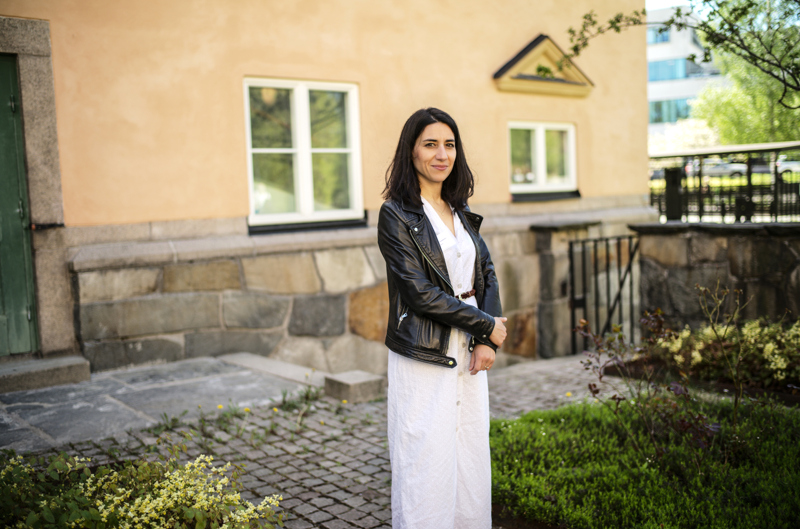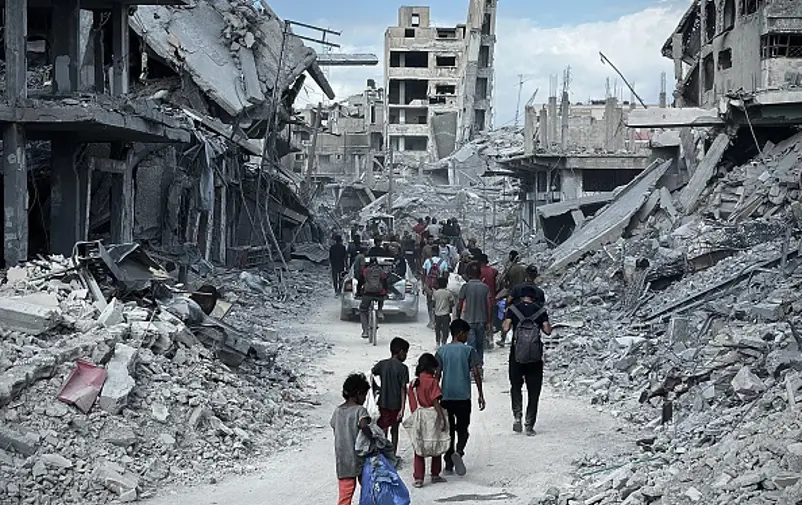Research on local communities' resilience when climate change sparks conflict
International organizations such as the UN, EU, and OECD have highlighted the intensified connection between environmental change and conflict. Rapid environmental changes have severe consequences for countries at war or in post-conflict phases. Antonio Guterres, Secretary-General of the United Nations, in his New Agenda for Peace, noted that climate change creates social dynamics that heighten tensions and escalate violent conflicts. "Maria Martin de Almagro Iniesta is a member of FBA's International Research Working Group and studies the impact of climate change on local communities in the conflict-affected eastern DR Congo.The academic literature on environmental peace has examined this phenomenon, arguing that collaborative efforts in conflict and post-conflict societies to manage shared resources or address natural disasters can foster positive peace, strengthen social cohesion, and enhance community resilience.
However, Maria Martin de Almagro Iniesta, researcher in conflict and development studies at the University of Ghent, has identified three major limitations in the current research literature.
– First, it treats environment and natural resource management as apolitical and technical, ignoring the myriad of international, national, and local interests that make war and conflict possible and profitable, often making peace less profitable. Second, literature views local communities as contained units, suggesting that improved natural resource management at the local level will ensure peace in that community. This approach fails to capture the continuum of crises experienced in conflict and post-conflict contexts where crises reinforce each other over decades. Finally, the literature is gender-blind. Despite policy-level consensus on the importance of addressing the intersection between gender, climate change, and conflict, there is little research on gender-differentiated contributions to peace, conservation, and sustainability.
Local communities’ resilience in the wake of climate change and conflict
As member of the FBA International Research Working Group, Maria Martin de Almagro Iniesta was granted funding by FBA in 2023 for a research project in eastern DR Congo.
– My project aims to map and examine how local communities, particularly women's movements, adapt and remain resilient in a place where climate change exacerbates prolonged conflict. I aim to produce knowledge on how indigenous communities experience climate-related security risks and deploy resilient practices to prevent conflict and deteriorating livelihood conditions.
In eastern DRC, particularly South Kivu, there has been significant vegetation loss since the 1990s due to deforestation linked to refugee influxes from neighboring conflicts, now exacerbated by climate change.
Maria Martin de Almagro Iniesta describes how farmers struggle to survive on subsistence agriculture and resort to cutting wood for income. Changing rainfall patterns have led to frequent flooding since 2020, displacing local populations. Prolonged dry seasons result in reduced grazing lands and water availability, worsening soil degradation and lowland erosion.
Climate change as a driver of conflict
These effects of climate change fuels both new and existing conflicts, Maria says.
– First, because there's less grazing land, pastoral communities often need to go through farmland to find water and grass for their animals. This provokes conflict between farmers and pastoralists, as farmers see their land and crops destroyed by the animals. Second, there's less water, leading to fights among local communities for access. Additionally, during flooding, displaced populations relocate to neighboring communities, creating tensions between host and displaced communities. This exacerbates existing conflicts and creates new patterns for armed groups to recruit individuals who have lost their means of survival and community ties. This situation provides fertile ground for the recruitment of more individuals to the armed groups in the region.

When people lose their means of living, joining armed groups becomes a survival strategy, offering both economic means and a sense of belonging. It is easier for recruiters when individuals have lost their community ties and livelihoods.
For example, after the floods last year in South Kivu, many communal spaces for conflict resolution and social gatherings were lost, diminishing the sense of community and belonging. Youth, lacking economic means and community ties, become more susceptible to recruitment by armed groups. Both economic survival and social cohesion are crucial factors in this dynamic.
Green hands of hope
Maria’s research team of four researchers has conducted fieldwork in refugee camps, using participatory action research methods. This approach prioritizes the active involvement of people with lived experiences, treating local communities as co-creators of knowledge.
They conducted individual interviews with local authorities and chiefs, focus groups divided by displaced and host community men and women, and employed creative methods such as body mapping and collective mapping.
– Body mapping involved participants drawing themselves and identifying emotions related to the floodings and their resilience strategies. This method revealed pain, joy, and hope, facilitating inclusive conversations and uncovering significant insights. For example, one woman drew her head in red to symbolize the stress of losing her farm, but her hands in green to symbolize the hope found in working on host community farms.
One of the strategies that refugees have used has been to negotiate with women's groups in host communities to gain access to their farms, exchanging produce or money for work. This collaboration helps women earn some produce or money to support their families. Another strategy involves taking care of children within the displacement camp, allowing others to work. These basic strategies show immediate solutions and possibilities for long-term social cohesion.
– The way we're distributing post-disaster relief and how recipients distribute it within their community is a key finding with policy implications. My project challenges policymakers to include local knowledge when designing programs. Collaborating with local communities, who have in-depth knowledge, can create targeted, context-specific policies, Maria says.
Policy-relevant research
As member of FBA’s International research Working Group, Maria participates regularly in discussions with policymakers about her research. She says that collaboration with policymakers ensures that academic findings are applicable to real-world policy problems, contributing to better solutions and policies.
– Being part of FBA's International research Working Group has provided tremendous possibilities to advance my research, such as conducting this project with an FBA grant and participating in workshops with other researchers working on similar topics. Discussing findings with policymakers has deepened my understanding of policy priorities and facilitated dialogue between the academic and policy communities to promote peace.
How FBA Works with Research
At FBA, scientific research is conducted on peace, security, and development. Our research is utilized by both the agency's employees and our partners, thereby making FBA's activities more evidence-based.
International Research Working Groups
FBA's international research working groups promote research within FBA's areas of expertise and facilitate the use of research, both within FBA's core activities and among the agency's partners.








 >
> >
>

